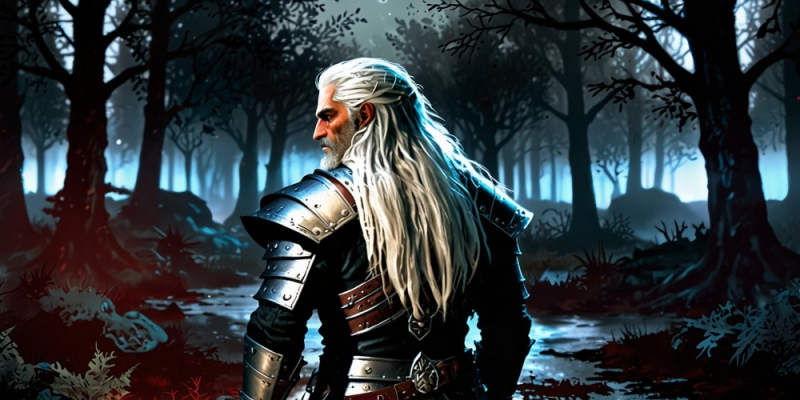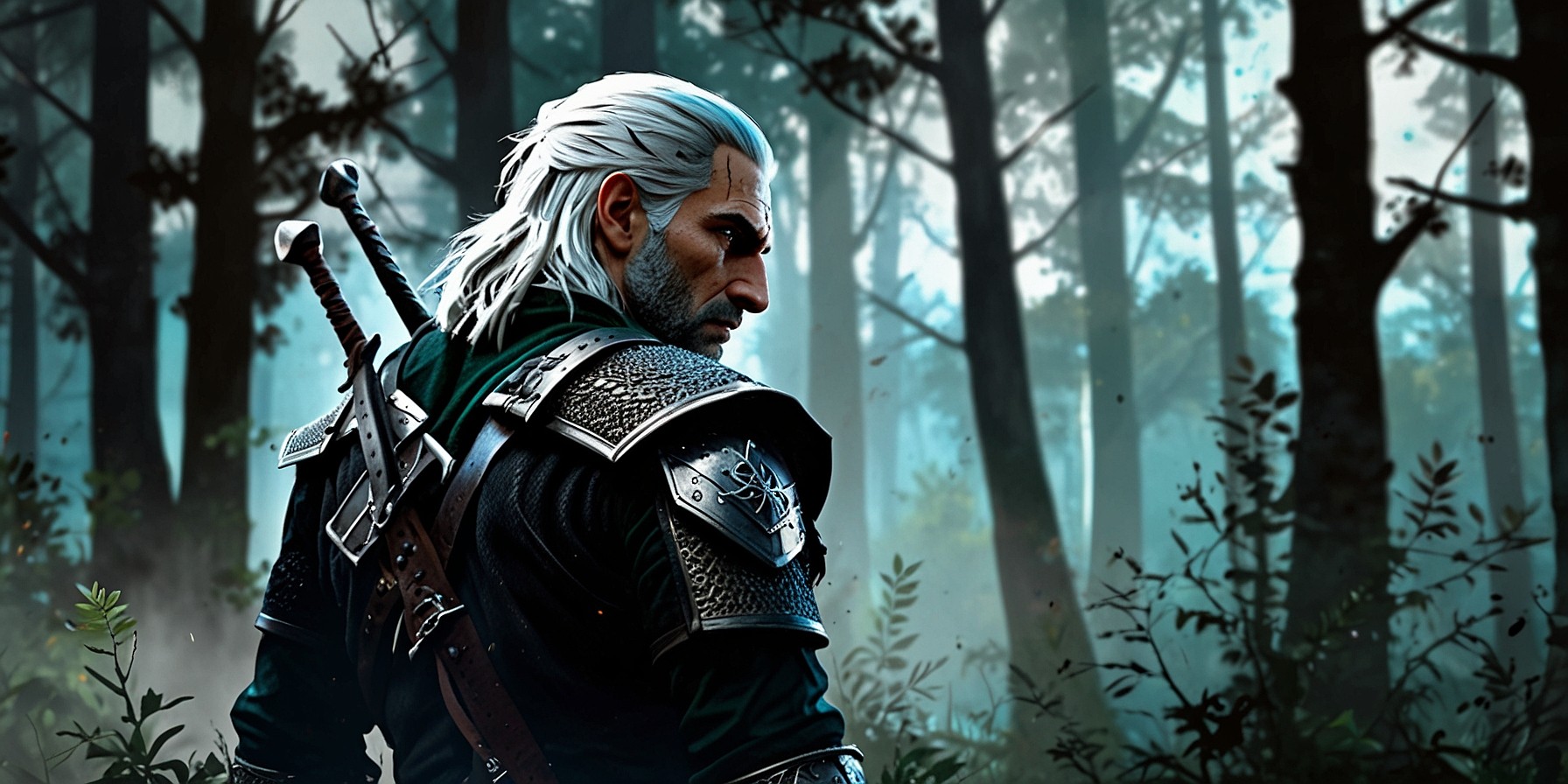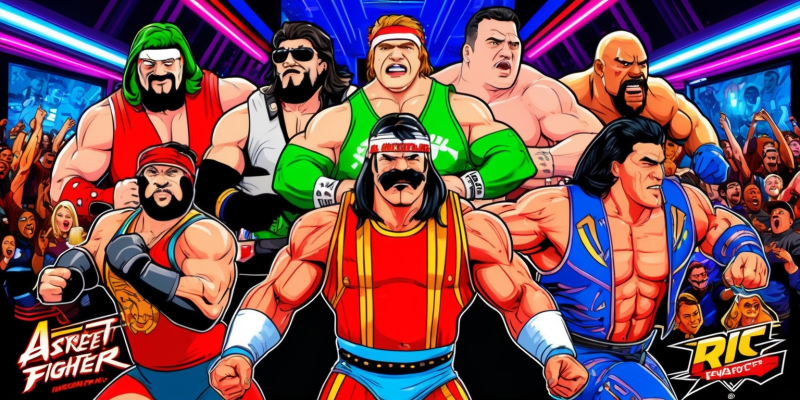Exploring the Rich Tapestry of The Witcher Universe: A Beginner's Guide

The Witcher Universe, crafted by Polish author Andrzej Sapkowski, has captivated audiences worldwide through its books, games, and television adaptations. For newcomers, diving into this rich and complex world can be both exciting and overwhelming. This guide aims to provide a comprehensive overview of The Witcher Universe, helping beginners navigate its intricate storylines, characters, and lore.
The Origins of The Witcher
The Witcher Universe originated from a series of fantasy novels and short stories by Andrzej Sapkowski. The series follows the protagonist, Geralt of Rivia, one of the last remaining witchers — monster hunters with supernatural abilities. Sapkowski’s writing combines Slavic mythology and folklore, crafting a unique and immersive world that stands out in the fantasy genre.
Initially, the stories were published in Polish science fiction and fantasy magazines in the mid-1980s. Over time, they gained popularity, leading to a full series of novels. The uniqueness of Sapkowski’s work lies in its moral complexity, humor, and mature themes, blending traditional fantasy elements with thoughtful character development.
Who is Geralt of Rivia?
Geralt of Rivia, the central character of The Witcher, is known for his distinctive white hair and stoic demeanor. As a witcher, he possesses enhanced abilities, including strength, speed, and reflexes, acquired through the rigorous and painful process known as the Trial of the Grasses. These skills are essential for his role as a monster hunter in a world fraught with danger.
Despite his fearsome reputation, Geralt is a complex character driven by a personal code of ethics. Throughout the series, he confronts the ambiguous nature of morality, often finding that the true monsters are not the creatures he fights, but the humans he encounters. His deep sense of duty and loyalty defines his interactions and relationships, making him a multifaceted hero.
The Political Landscape
The Witcher Universe is not just a world of monsters and magic; it is a realm rife with political intrigue. Various kingdoms, empires, and factions constantly vie for power and influence. This dynamic political landscape shapes the narratives and adds layers of complexity to the storylines.
The most significant political entity is the Nilfgaardian Empire, known for its vast expansionist ambitions. Its aggressive strategies often lead to conflict with the Northern Kingdoms, creating a backdrop of tension that impacts the lives of all characters, including Geralt. Understanding these political dynamics is essential for grasping the broader context of the series.
The Magic and Mythology

Magic is a cornerstone of The Witcher Universe, seamlessly woven into the fabric of its society. Mages, sorceresses, and magical creatures play crucial roles, with their abilities influencing both personal and political agendas. The use of magic raises questions about power and responsibility, adding depth to the narrative.
Underlying the use of magic is a rich tapestry of mythology and folklore. Drawing from Slavic legends and fairy tales, Sapkowski creates a world where mythical creatures and ancient lore coexist with human endeavors. This blending of myth and reality creates a unique atmosphere that enriches the storytelling experience.
The Role of Witchers
Witchers serve as mercenaries specializing in hunting down and removing supernatural threats. Trained from a young age, they undergo rigorous physical and mental challenges to develop their abilities. They are also equipped with knowledge of alchemy and specialized combat skills to aid them in their quests.
Despite their crucial role in maintaining balance, witchers are often misunderstood and mistrusted by the very people they protect. Their mutations and dispassionate nature make them outsiders, leading to a life of solitude and suspicion. This tension between their purpose and societal perception adds complexity to their existence.
Iconic Monsters and Creatures
The world of The Witcher is teeming with a diverse array of monsters and magical creatures. From gruesome ghouls to majestic dragons, the variety and creativity of these entities add to the series' allure. Each creature is crafted with its own lore, habits, and challenges, requiring Geralt to adapt his approach accordingly.
These monsters are not just obstacles for the protagonist; they often serve as reflections of deeper themes. Through encounters with these creatures, the series explores ideas such as the nature of evil and the blurred lines between humanity and monstrosity. This makes each confrontation more than just a battle; it is an exploration of existential themes.
The Role of Destiny
Destiny plays a crucial role in The Witcher Universe, guiding the paths of characters and shaping events. The concept of the “Law of Surprise” is a recurring element, highlighting the idea that fate can be preordained, yet still influenced by personal choices. This intertwining of destiny and free will is a central theme throughout the series.
Geralt’s journey is heavily influenced by destiny, particularly through his bond with Ciri, a young girl tied to him by the Law of Surprise. Their relationship is pivotal, as both characters navigate the complexities of their intertwined fates while grappling with the responsibilities that destiny bestows upon them.
The Games and Their Impact
The Witcher video game series, developed by CD Projekt Red, has played a significant role in popularizing the universe beyond its literary origins. The games expand on the lore and provide an interactive experience for fans to immerse themselves in Geralt’s world. With critically acclaimed titles, the series has become a favorite among gamers and fantasy enthusiasts alike.
The success of the games has also contributed to a broader interest in the original books, leading to an international resurgence of Sapkowski’s work. This synergy between literature and gaming has created a vibrant fandom eager to explore every facet of The Witcher Universe.
The Netflix Series: A New Perspective
The Netflix adaptation of The Witcher has introduced the series to an even wider audience. Starring Henry Cavill as Geralt, the show presents a new visual interpretation of the stories, bringing the characters and world to life with cinematic flair. Its success has sparked renewed interest and debate about the interpretations of Sapkowski’s work.
While the series remains faithful to the source material, it also takes creative liberties to adapt the rich narrative for television. This has led to discussions within the fandom about the nature of adaptations and the importance of staying true to the essence of the original stories. For newcomers, the show serves as an accessible entry point into the intricate universe of The Witcher.
Starting Your Journey into The Witcher Universe
For those new to The Witcher, the universe offers a wealth of stories and characters to explore. Whether starting with the books, diving into the games, or watching the Netflix series, there are multiple avenues to engage with this captivating world. Each medium offers a unique perspective, enriching the experience for fans.
Beginner's Tips: Start with the folklore and mythology to grasp the world’s foundational elements. Familiarize yourself with the political landscape and Geralt’s personal journey to fully appreciate the nuanced storytelling. As you explore, you’ll find yourself drawn into a universe where fantasy and reality beautifully intertwine.
Most Popular
-
![]() Top Apps
Unveiling the Underground: Strategic Getaways and Hidden Health Havens
A Journey Through Hidden Fast Travel Portals
The vibrant world awaiting exploration in this game is...
Read more
Top Apps
Unveiling the Underground: Strategic Getaways and Hidden Health Havens
A Journey Through Hidden Fast Travel Portals
The vibrant world awaiting exploration in this game is...
Read more
-
![]() News
Black Myth Wukong: Keychron's 75% Wireless Masterpiece
The latest creation from Keychron has arrived, boasting a striking design and innovative features th...
Read more
News
Black Myth Wukong: Keychron's 75% Wireless Masterpiece
The latest creation from Keychron has arrived, boasting a striking design and innovative features th...
Read more
-
![]() News
Comic-Con Crossover: Wrestling Legends Reimagined as Arcade Warriors
This exciting announcement brings together two major entertainment giants in a surprising collaborat...
Read more
News
Comic-Con Crossover: Wrestling Legends Reimagined as Arcade Warriors
This exciting announcement brings together two major entertainment giants in a surprising collaborat...
Read more


